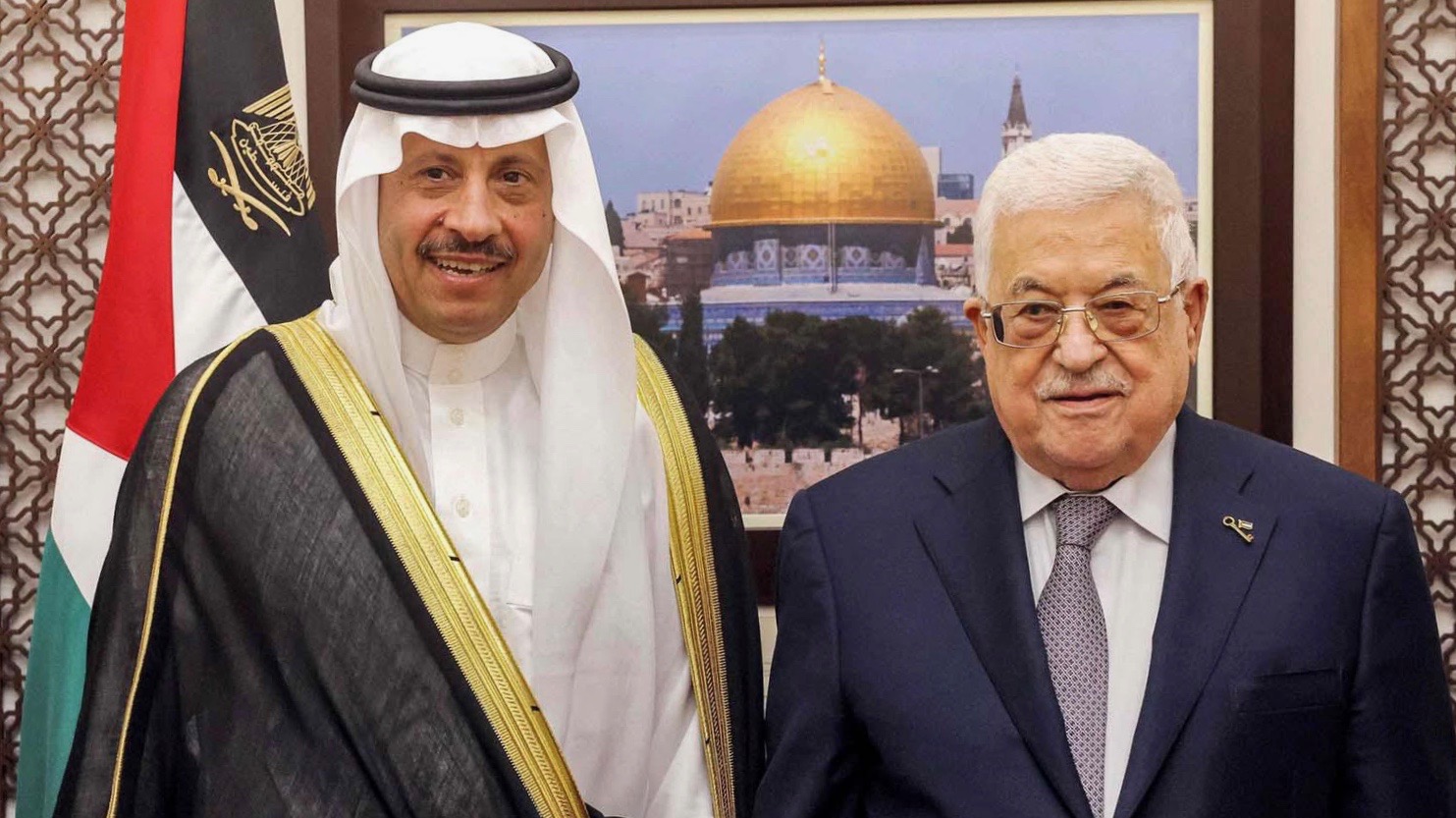On Tuesday, September 26, a Saudi Arabian delegation on an official two-day visit to Palestine called for the establishment of a Palestinian state in the occupied territories as a prerequisite for any normalization of ties with Israel. The delegation met with various officials including Palestinian Authority (PA) President Mahmoud Abbas and Foreign Minister Riyad al-Maliki. The visit also saw the appointment of the first ever Saudi ambassador to Palestine.
The visit was the first by Saudi government officials since the signing of the Oslo accords between Palestine and Israel in 1993. The two sides discussed Palestinian concerns in relation to the Saudi-Israeli normalization talks. Saudi ambassador to Jordan, Nayef al-Sudairi, who was appointed as the non-resident ambassador to Palestine, noted that the Saudi government is “working towards establishing a Palestinian state with East Jerusalem as its capital.” He added that the delegation’s visit “reaffirms that the Palestinian cause and Palestine and the people of Palestine are of high and important status and that in the coming days there will be a chance for a bigger cooperation between Saudi Arabia and the state of Palestine.”
The newly appointed ambassador will be based out of Jordan’s capital Amman and travel to Ramallah for official purposes whenever needed as there is currently no Saudi embassy or consulate in Palestine.
According to reports, Palestinian and Saudi officials have in the recent past held talks to discuss Palestinian demands for their support to Saudi-Israel normalization. Significant among these demands are status changes to areas in the occupied West Bank, particularly to Area C which is currently under the full control of the Israeli military. Palestinian officials want Area C to be reclassified under Area B, which would give civilian control of the area to the PA but security control would be retained by Israel. Other demands include Israel resuming final-status negotiations towards the establishment of a Palestinian state, but this time with a “clear time table,” and for the Saudis to open a consulate in Jerusalem.
Even as reports have speculated that the Saudi-Israel talks have gathered pace and are making progress, the Saudi government has insisted that it will stick to the resolution of the Arab League of not establishing relations with Israel until the occupation of Palestine ends and a just and peaceful resolution is reached on all outstanding issues in relation to the occupation. In this regard, the Saudi ambassador made a reference to the Arab initiative proposed by Saudi Arabia in 2002 and noted its importance in any normalization talks with Israel, calling it a “fundamental pillar of any upcoming agreement.”
However, several other Palestinian groups and political factions have expressed concerns regarding the Saudi-Israeli talks, noting that normalization with Israel without any conditions could have the effect of emboldening the Zionist state to further entrench its occupation and perpetrate more violence and oppression against Palestinians. Hamas, which controls Gaza, has said that Saudi-Israeli normalization would encourage Israel to escalate its violent and increasingly regular attacks and raids in the occupied West Bank, particularly on the Al-Aqsa mosque.
Earlier, the Popular Front for the Liberation of Palestine (PFLP) had also warned against Saudi-Israeli normalization, calling it an extremely dangerous prospect. It noted Saudi Arabia’s significance for the Arab and Islamic world and said its normalization of ties with Israel would be a bigger deal than other countries that have done the same over the past few years, and would also serve as a catalyst for more countries to follow that path. The PFLP also warned the Palestinian Authority against making concessions on long-standing Palestinian demands and issues to gain any short term monetary benefits or diplomatic promises which might not be delivered on in the future.
The normalization of Saudi-Israeli ties is being strongly pushed by the United States as part of the Abraham Accords. According to reports, Saudi Arabia has asked for security guarantees and support for its domestic nuclear program. Over the past few years, the United Arab Emirates, Bahrain, Sudan, and Morocco have normalized ties with Israel.





